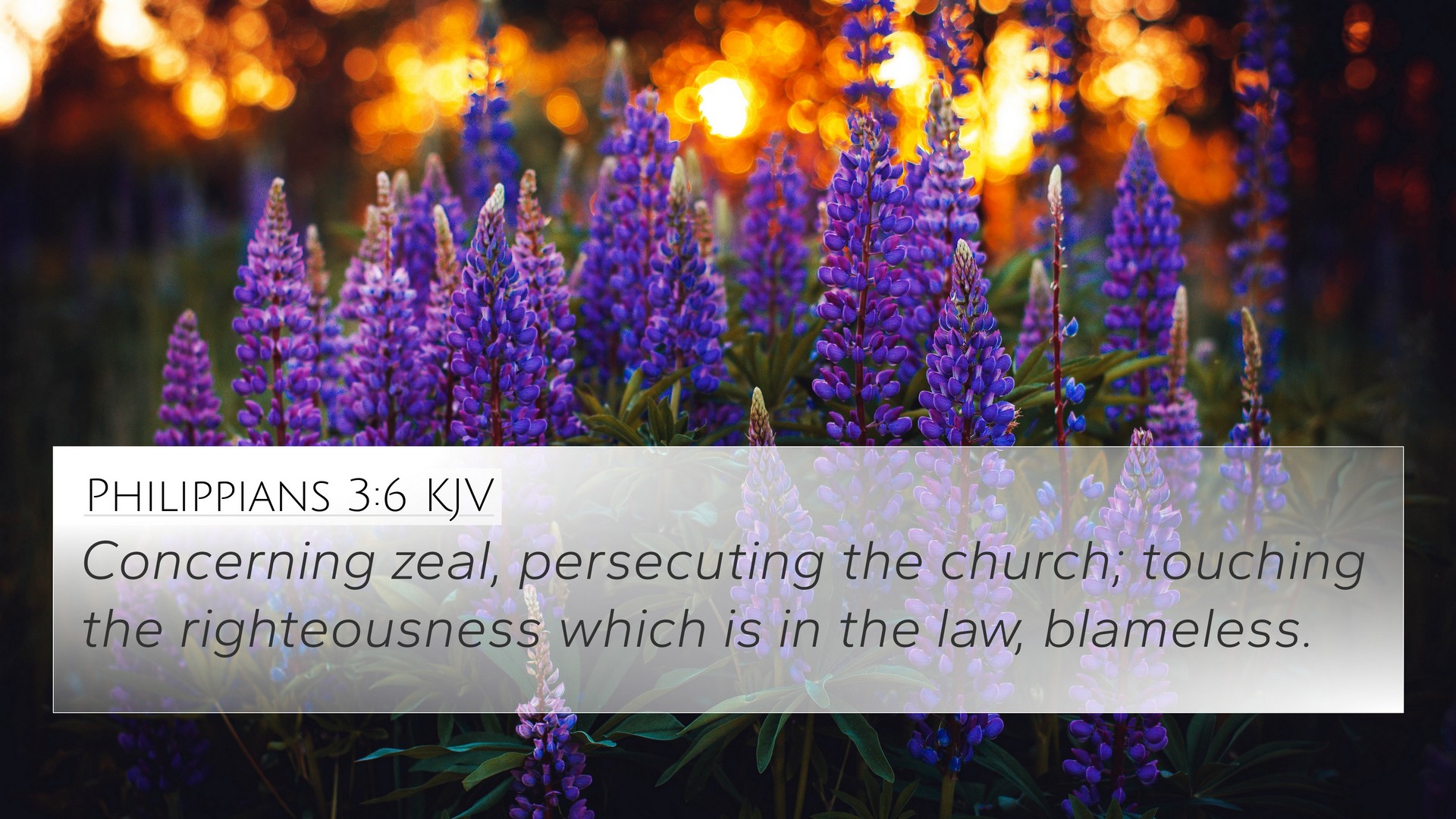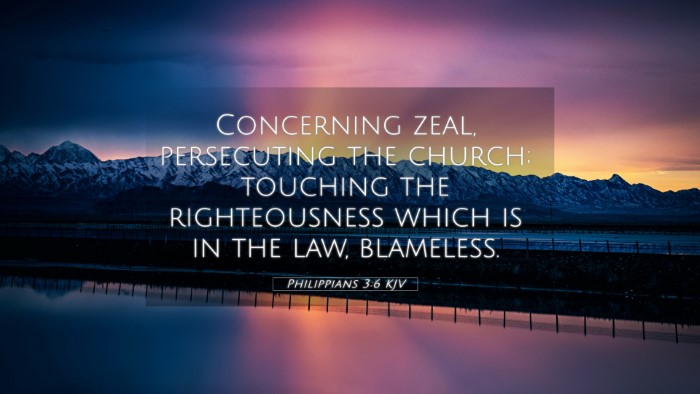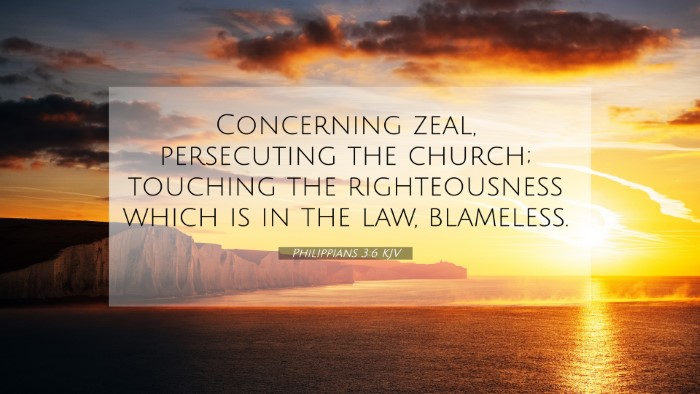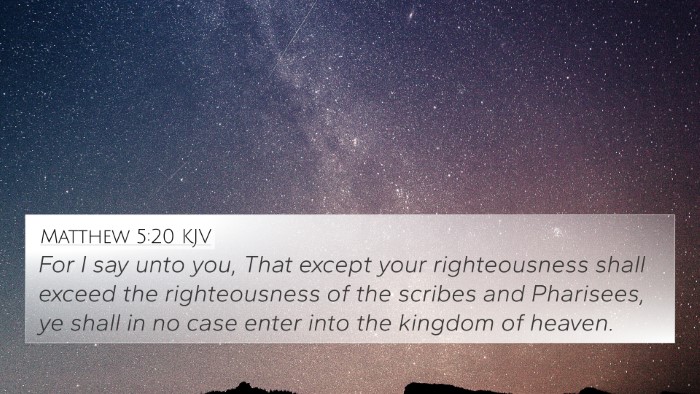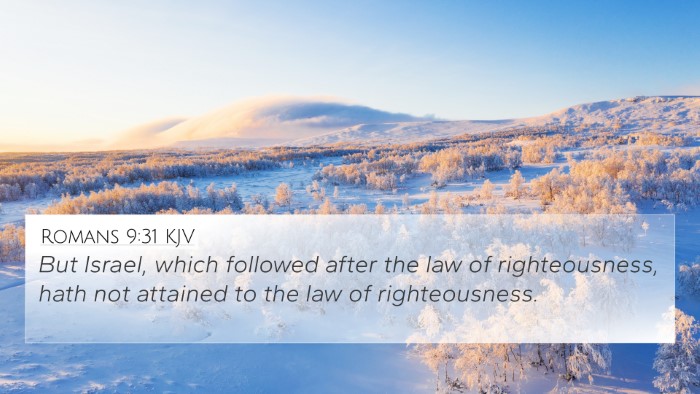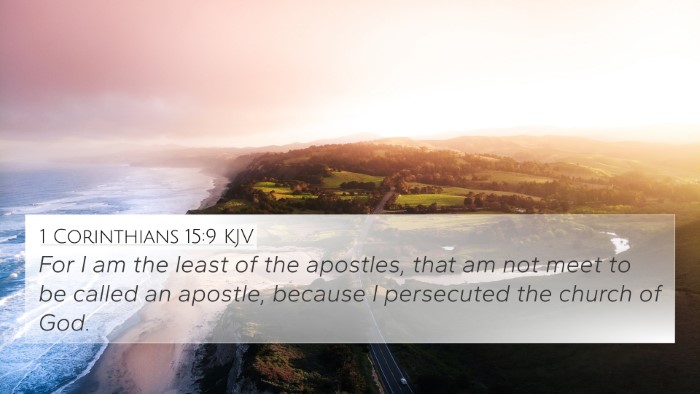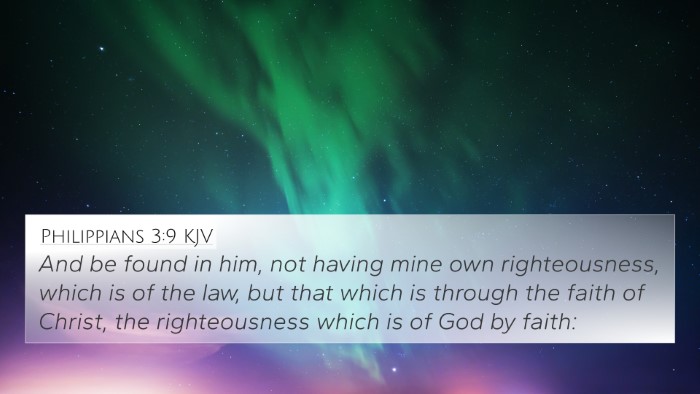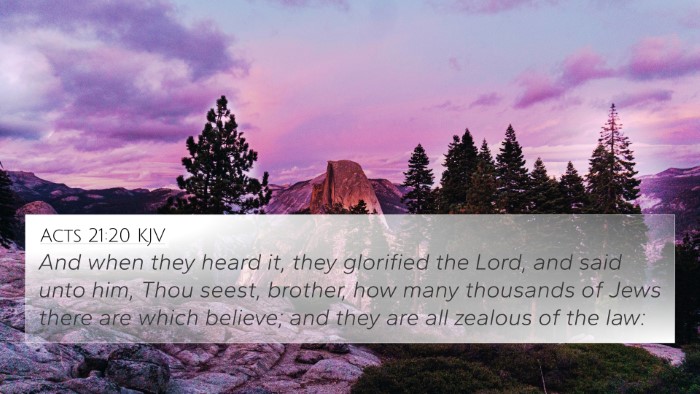Understanding Philippians 3:6
Bible Verse: Philippians 3:6
This verse states: "Concerning zeal, persecuting the church; touching the righteousness which is in the law, blameless."
Summary of Interpretation
In Philippians 3:6, the Apostle Paul reflects on his former life as a zealous Pharisee before his conversion to Christianity. His statement offers a glimpse into his past, showcasing his intense commitment to Jewish law and the extent of his fervor, which unfortunately included the persecution of Christians. This verse serves as a backdrop for Paul’s later assertions about the value of faith in Christ over adherence to the law.
Insights from Commentaries
Matthew Henry's Commentary
Henry emphasizes Paul's background and the importance of understanding his previous life to fully appreciate his transformation. He points out that zeal without knowledge can lead to destructive actions, demonstrated by Paul’s persecution of the church. Moreover, his reference to being blameless under the law indicates a level of self-righteousness that he later renounces.
Albert Barnes' Notes
Barnes highlights the contrast between Paul’s former zeal and his new identity in Christ. He notes that Paul’s blamelessness in adhering to the law was not accounted as righteousness before God. Paul’s acknowledgment of his past is a declaration that true righteousness must stem from faith and is not about legalistic perfection.
Adam Clarke's Commentary
Clarke offers insight into the specific cultural and religious context of Paul's statement. He discusses how Paul’s zealous pursuit of the law and earlier actions against Christians demonstrates the fallibility of human righteousness. Clarke suggests that Paul’s narrative serves as a caution against self-reliance in spiritual pursuits.
Bible Verse Cross-References
To deepen the understanding of Philippians 3:6, the following verses offer significant cross-references:
- Acts 7:58: The stoning of Stephen, highlighting early Christian persecution.
- Acts 8:3: Saul's aggressive persecution of the church.
- Galatians 1:13-14: Paul’s history of zeal in Judaism.
- Romans 7:12: The law is holy; Paul acknowledges its purpose.
- 2 Corinthians 5:17: The transformative power of being in Christ.
- Philippians 3:9: Righteousness through faith in Christ as opposed to law.
- 1 Timothy 1:13: Paul’s recognition of his past in God's mercy.
- Matthew 5:20: The call to a surpassing righteousness beyond the Pharisees.
- Romans 3:20: The law does not justify but reveals sin.
- Acts 9:1-6: The dramatic conversion of Saul.
Practical Applications
This verse encourages readers to reflect on the dangers of zeal without knowledge and serves as a reminder that true righteousness comes from a relationship with Christ rather than mere law adherence. The historical context provided by previous lives of faith, especially Paul’s, illustrates the transformative power of grace.
Connections Between Bible Verses
The connections between Philippians 3:6 and other Biblical texts underline themes of transformative faith, the inadequacy of the law, and God's grace. These thematic Bible verse connections are essential for studying the nature of righteousness and redemption throughout Scripture.
Comparative Bible Verse Analysis
By engaging in comparative Bible verse analysis, individuals can explore how various authors, including Paul, address the relationship between zeal, faith, and the law. Linking Bible scriptures allows believers to build a more comprehensive understanding of the New Testament’s message concerning grace and faith.
Conclusion
Philippians 3:6 serves as a powerful reminder of the Apostle Paul’s journey from a life of legalism to one enriched by grace through faith in Christ. By examining other relevant scriptures, believers can grasp the depth of this transformation and apply its lessons in their spiritual lives.
